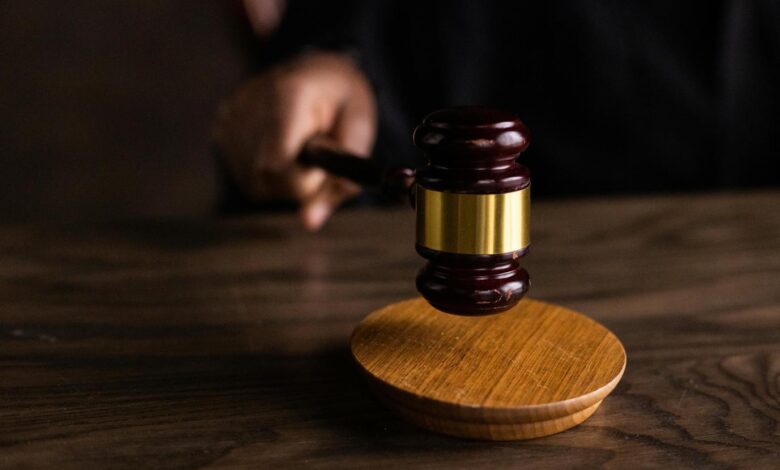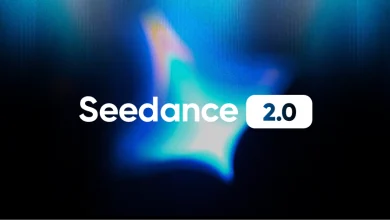
Artificial intelligence (AI) is rapidly transforming professional sectors, including the legal industry. The concept of AI analysing criminal law precedents is no longer hypothetical—it’s being tested in real-world environments. For individuals and legal teams, particularly those seeking support from criminal lawyers in London, understanding how AI intersects with legal research and defence strategy is essential.
This article delves into AI’s current role in criminal law, how it interprets precedent, and what its practical limitations are.
Image credit: Pexels
What Is Legal Precedent and Why It Matters
Legal precedent refers to previous court rulings that guide future cases. In criminal law, citing precedents helps solicitors frame arguments and predict how courts might interpret similar facts. The UK operates under a common law system, making precedent a fundamental pillar of case law.
Traditionally, lawyers spend extensive time manually researching past decisions. AI promises faster access to relevant precedents by scanning thousands of judgments in moments and identifying useful patterns. This can save significant time and reduce the risk of missing crucial rulings that might otherwise support or challenge a client’s position.
How AI Supports Legal Research
AI-driven platforms use natural language processing (NLP) to interpret complex legal texts and flag relevant rulings. These tools offer instant cross-referencing between similar cases, legislation, and court outcomes. Legal tech companies like LexisNexis and CaseMine are developing UK-specific platforms to enhance these capabilities.
According to the Alan Turing Institute, the application of AI in law is helping firms streamline research, especially in appeals where precedent is crucial. It is not a substitute for legal reasoning, but it provides a time-efficient foundation. By automating the repetitive aspects of research, lawyers are free to focus on strategy and personalised client care.
Some firms have also started exploring AI tools to support risk assessment in criminal cases. By comparing existing data and historical outcomes, solicitors can generate more informed predictions about sentencing trends or plea deal outcomes. This use of AI, while still in its infancy, highlights how legal professionals can make decisions with better data.

Where Human Judgment Remains Essential
AI’s efficiency is promising, but it cannot replace the human judgement needed in criminal defence. Nuance, emotional intelligence, and courtroom strategy are outside the capabilities of any machine. Lawyers consider context, ethical implications, and evolving interpretations of the law, all of which AI cannot fully grasp.
Additionally, legal professionals play an irreplaceable role in cross-examination, evidence assessment, and tailoring arguments to judges and juries. A machine can suggest a precedent—but it can’t win a case. Understanding the intentions behind legislation and anticipating a judge’s reasoning remain uniquely human capabilities.
Ethical Implications and Accountability
The integration of AI into criminal defence raises ethical concerns. The Ada Lovelace Institute has highlighted risks such as data bias, lack of transparency, and over-reliance on algorithms. If an AI tool recommends flawed precedents, responsibility still lies with the legal team.
Ensuring human oversight and maintaining full accountability are essential. Legal professionals must verify all AI-assisted insights and maintain ethical standards of care. In sensitive cases such as youth offences or vulnerable witnesses, a solicitor’s judgement is crucial in choosing whether to use AI tools at all.
System Limitations and Data Challenges
AI’s effectiveness depends on high-quality, well-structured data. Many older court judgments are not digitised or standardised, which limits access and usability. Criminal law is also filled with nuance, including cultural context and testimonial interpretation, which AI struggles to decode.
According to the Law Society Gazette, legal experts are calling for clearer rules and safeguards before AI becomes more embedded in UK courtrooms. Transparency in how AI tools process legal information is a priority. Without consistency in data, AI may inadvertently reinforce historical biases or overlook legally significant anomalies.
The Open Data Institute has advocated for better open justice policies, encouraging the UK legal system to standardise and publish court data to support fair and accessible use of legal AI tools.
International Trends and AI Regulation
In jurisdictions such as the US and Canada, AI is already assisting in legal research and case analysis. However, these tools are not yet relied upon exclusively. In the UK, organisations like Tech Nation are tracking how legal AI solutions evolve, with a focus on accountability and ethical implementation.
Currently, UK courts do not permit AI-based recommendations to dictate decisions. Instead, AI serves as a supportive research tool under close human supervision. The Solicitors Regulation Authority (SRA) has issued guidance on the responsible use of technology in legal services, reinforcing the need for transparency and fairness.
Comparatively, the European Union is advancing legislation like the AI Act to ensure legal oversight of algorithms in decision-making contexts. While the UK is no longer bound by EU law, these developments influence domestic policy discussions.
Final Reflections: Where Do We Go From Here?
AI offers exciting potential to streamline legal research, especially for solicitors preparing complex defence strategies. But it cannot replace human judgement, courtroom skills, or ethical reasoning. With continued oversight, AI can serve as a valuable aid without undermining due process.
As the legal profession adapts, firms embracing innovation while maintaining human expertise will lead the way. With balanced tools and skilled criminal lawyers in London, the justice system can benefit from the best of both worlds. Clients, too, should be encouraged to ask how AI tools are used in their case, and how decisions are still made by experienced professionals.
Please be advised this article is for informational purposes only and should not be used as a substitute for advice from a qualified legal professional. Always consult a solicitor for personalised guidance regarding criminal defence or legal technology.





